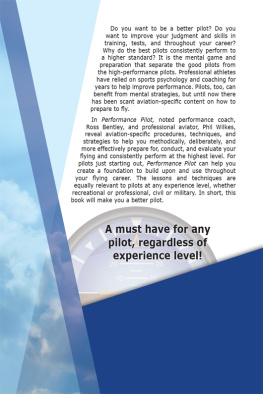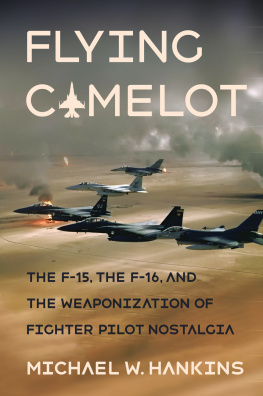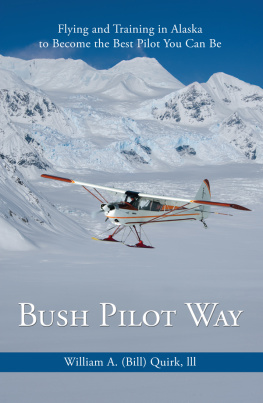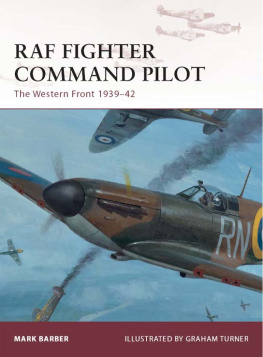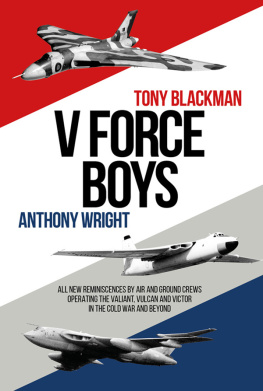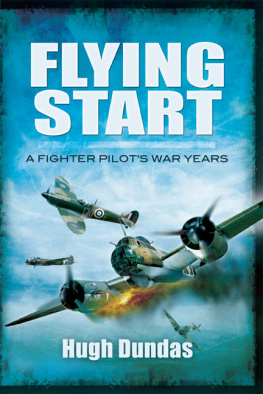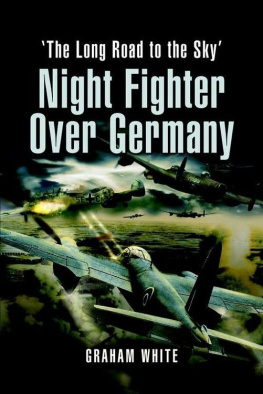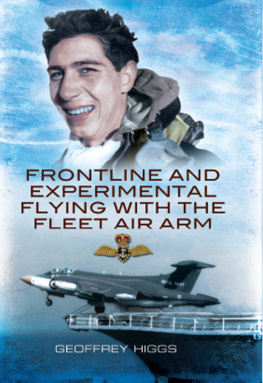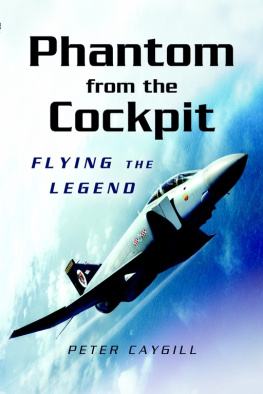FLYING AT THE EDGE
FLYING AT THE
EDGE
TONY DOYLE
20 years of Front-line and Display Flying in the
Cold War Era
First published in Great Britain in 2010 by
Pen & Sword Aviation
An imprint of
Pen & Sword Books Ltd
47 Church Street
Barnsley
South Yorkshire
S70 2AS
Copyright A.J.R. Doyle, 2010
ISBN 978 1 84884 366 0
The right of A.J.R. Doyle to be identified as Author of this work has been asserted
by them in accordance with the Copyright, Designs and Patents Act 1988.
A CIP catalogue record for this book is
available from the British Library
All rights reserved. No part of this book may be reproduced or transmitted in any
form or by any means, electronic or mechanical including photocopying, recording
or by any information storage and retrieval system, without permission from the
Publisher in writing.
Typeset in 9 on 10.5pt Times New Roman by
Acredula
Printed and bound in England
By CPI
Pen & Sword Books Ltd incorporates the Imprints of Pen & Sword Aviation,
Pen & Sword Family History, Pen & Sword Maritime, Pen & Sword Military,
Wharncliffe Local History, Pen & Sword Select, Pen & Sword Military Classics,
Leo Cooper, Remember When, Seaforth Publishing and Frontline Publishing
For a complete list of Pen & Sword titles please contact
PEN & SWORD BOOKS LIMITED
47 Church Street, Barnsley, South Yorkshire, S70 2AS, England
E-mail: enquiries@pen-and-sword.co.uk
Website: www.pen-and-sword.co.uk
Dedication
Quem di diligunt adolescens moritur
Dedicated to the memory of Dicky, Trevor, Jerry, Kiwi, Tom, Al and all the others who
ended up losing an argument with gravity.
I thank Carole Fries, Lucy Gray, Brian Voller, Geoff Clarkson and Dave Bigmore for their encouragement and comments, my wife for proofreading and endless coffees, and Bill Muir for an adroit boot in the backside, without which this would have remained gathering dust on a remote shelf in my study.
This is a narrative account of my military flying experiences in which I have deliberately avoided reference to what was happening in the private side of my life. The fact that I do not mention how the wear and tear of daily life on an active flying station affects wives, parents and children does not mean that I was unaware of it at the time. Perhaps one day when my skill has improved, and I feel spiritually up to it, I might tackle the task, but for this book I have confined myself to the subject of me versus gravity. The style has given me some difficulty. In the RAF there has long been a rather vague tradition that it is bad form to shoot a line. An exact definition of the difference between a line and a good yarn is, however, not so easily come by. The RAF was formed from a merger of Naval and Army units, and some of their traditions have come down from the customs found in the services of those times. During the inter-war years there was a fairly determined effort to restore these traditions to the position of dominance they had lost during the dramatic expansion in the First World War. In the Second World War this tendency was more or less swamped due to the vast increase in size and the change in the type of recruit. Apart from a hesitant struggle to the surface in the late fifties, most of the social excess baggage has now sunk pretty well without trace. Operational pilots no longer need to be forbidden to talk of women, religion or politics in the mess for fear it might lead to their fighting duels. They dont wear hats with civilian clothes and they dont leave calling-cards. What most service pilots talk about, endlessly, are stories about flying. For the most part these conversations are concerned with the recalcitrance and machinations of the fickle finger of fate, and in the hope of capturing the spirit of such exchanges I have tended towards an informal, sardonic treatment
As I wrote I was surprised, and pleased, to find quite a number of events I had completely forgotten, emerging, unbidden, from the past, and I had the assistance of my service logbooks to help me get the chronology more or less right. I regret that I had very little help from contemporary diaries as, until quite recently, I was very bad at keeping them. Consequently much of what I write has come from memory, and memories are notoriously patchy. Most of the events described happened over forty years ago, and the bits that have remained in my memory inevitably form a limited and filtered version of the past. Where I think it matters I have stated that I cannot remember exactly what happened, but otherwise I have puttied up the cracks from my imagination to keep the narrative flowing. And I confess to the occasional exit through a door that did not, in fact, exist.
The world is full of idiots striving to involve others in their foolishness, and I have had my fair share. Some of my comments on the higher management may seem unduly critical; however, it has been remarked by more than one commander that the common soldier must be allowed his grumble, and if not quite a poilu, I was well down the chain of command for most of my career. As Tedder remarks in the preamble to his With Prejudice, a personal account of events is bound to carry some degree of prejudice, and the world would be a poorer place if everyone kept a strictly PC tongue in his head. In any case the reader should bear in mind that the air force I joined in 1952 was unrecognizably different from the Royal Air Force of today. To start with, it was in a state of considerable upheaval. The savage contraction that followed the Second World War had been suddenly reversed into a rapid expansion when events in Korea briefly threatened to expand into another global conflict. In no time at all the whole machine was thrown into reverse as it became evident that the Royal Air Force was not going to be involved. National Service made the planners task even harder, as there was little time in two years to train anyone to a useful standard, and National Servicemen were, understandably, not well known for their spirit of helpful co-operation. For several years the organization was in a state of considerable upheaval, and administrators were so busy trying to catch up with events that they had little time to plan ahead. Paperwork was retrospective, people got lost in the system, posting notices arrived days late, promotion was haphazard, etc.
It should also be remembered that Jet Jocks working at the coal-face were bound to have a rather one-eyed view of events. In a fighting service it is not always a good idea to let the front line know exactly what is in the wind, so those at the bottom cannot always see the big picture. Nor are the services any sort of a democracy. It is the specific duty of the military man to obey the orders passed down to him from above, and he has no right to demand explanations. I describe how things looked to me at the time, and there are bound to be others who saw things differently. Some people have a better nose than others for bizarre incidents that often only occupy a brief moment but, in the remembering and retelling, become more substantial than might be expected, considering the fleeting events on which they are based; therefore it would be unwise to try to form an idea of an individuals full character by extrapolating from their behaviour in such brief isolated incidents. This cuts both ways, as I have seen normally upright citizens put up uncharacteristic blacks and the most witless fools pull off acts of stunning skill.


